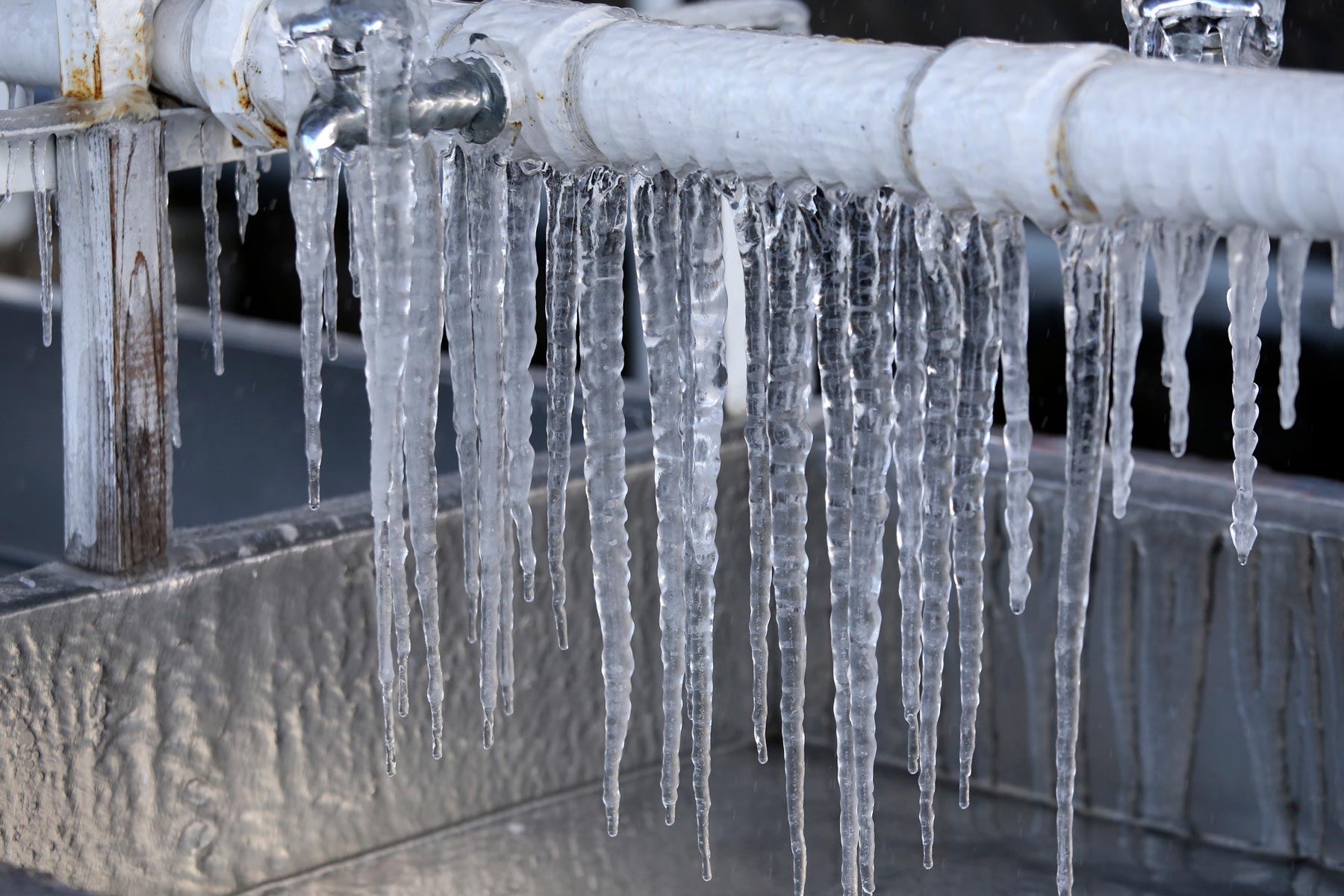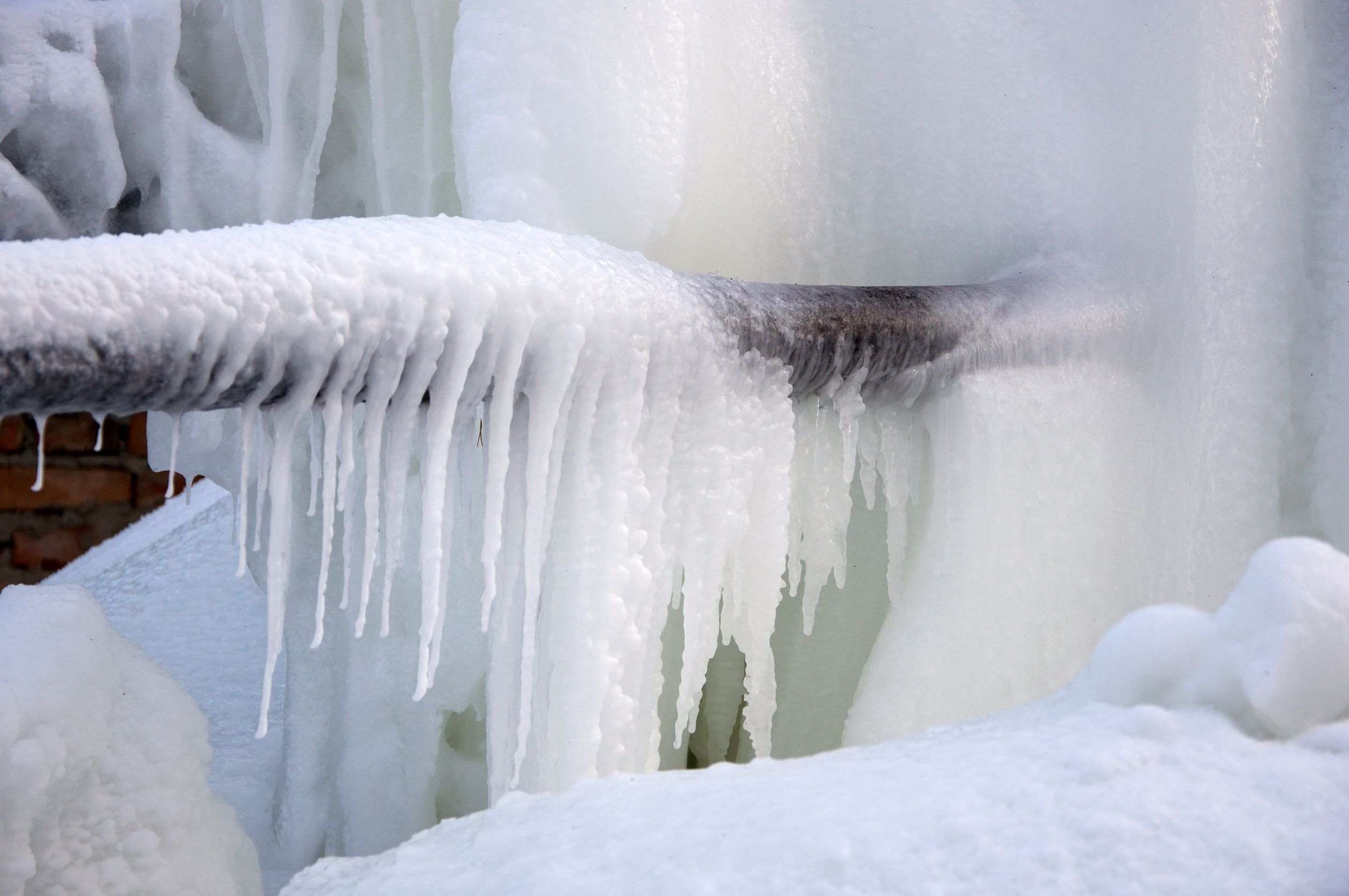Crucial Advice to Avoid Frozen Pipes in Winter
Crucial Advice to Avoid Frozen Pipes in Winter
Blog Article
Nearly everybody may have their own assumption when it comes to How to prepare your home plumbing for winter weather.

Winter can damage your plumbing, particularly by freezing pipelines. Below's exactly how to avoid it from occurring and what to do if it does.
Intro
As temperature levels decrease, the danger of frozen pipelines rises, possibly resulting in costly fixings and water damage. Understanding just how to avoid icy pipes is essential for home owners in chilly environments.
Prevention Tips
Shielding susceptible pipelines
Cover pipes in insulation sleeves or make use of heat tape to secure them from freezing temperature levels. Focus on pipes in unheated or external areas of the home.
Heating methods
Maintain indoor spaces effectively warmed, especially areas with plumbing. Open cupboard doors to permit cozy air to flow around pipelines under sinks.
How to identify frozen pipes
Search for reduced water flow from faucets, unusual odors or noises from pipelines, and noticeable frost on revealed pipelines.
Long-Term Solutions
Architectural modifications
Think about rerouting pipes away from outside wall surfaces or unheated areas. Add extra insulation to attic rooms, cellars, and crawl spaces.
Upgrading insulation
Buy high-grade insulation for pipelines, attics, and wall surfaces. Correct insulation helps keep constant temperatures and lowers the danger of frozen pipelines.
Protecting Exterior Plumbing
Yard hose pipes and exterior faucets
Disconnect and drain pipes garden tubes before winter months. Set up frost-proof faucets or cover outside taps with insulated caps.
Comprehending Icy Pipes
What triggers pipelines to freeze?
Pipes ice up when revealed to temperatures below 32 ° F (0 ° C) for prolonged durations. As water inside the pipelines freezes, it expands, putting pressure on the pipeline wall surfaces and possibly creating them to break.
Risks and damages
Frozen pipes can result in water system disturbances, residential or commercial property damage, and expensive repair work. Burst pipes can flooding homes and create substantial architectural damage.
Signs of Frozen Pipes
Recognizing icy pipes early can prevent them from bursting.
What to Do If Your Pipelines Freeze
Immediate actions to take
If you suspect icy pipes, keep taps open to relieve stress as the ice melts. Make use of a hairdryer or towels soaked in warm water to thaw pipes slowly.
Verdict
Stopping frozen pipelines requires positive measures and quick feedbacks. By understanding the causes, indicators, and preventive measures, property owners can shield their plumbing during cold weather.
6 Proven Ways to Prevent Frozen Pipes and Protect Your Home
Disconnect and Drain Garden Hoses
Before winter arrives, start by disconnecting your garden hoses and draining any remaining water. Close the shut-off valves that supply outdoor hose bibs and leave the outdoor faucet open to allow any residual water to drain. For extra protection, consider using faucet covers throughout the colder months. It’s also important to drain water from any sprinkler supply lines following the manufacturer’s directions.
Insulate Exposed Pipes
Insulating your pipes is an effective way to prevent freezing. Pipe insulation is readily available at home improvement stores and is relatively inexpensive. Pay close attention to pipes in unheated areas such as the attic, basement, crawl spaces, or garage. Apply foam insulation generously to create a buffer against the cold. You can also wrap your pipes in heat tape or thermostat-controlled heat cables for added warmth.
Seal Air Leaks
Inspect your home for any cracks or openings that could let in cold air. Seal any holes around the piping in interior or exterior walls, as well as the sill plates where your home rests on its foundation. Additionally, make sure to keep your garage door closed unless you’re entering or exiting. Leaving it open creates a significant air leak that can lead to frozen pipes.
Allow Warm Air Circulation
During cold snaps, it’s essential to allow warm air to circulate evenly throughout your home. Leave interior doors ajar to promote better airflow. Open kitchen and bathroom cabinets to help distribute heat consistently around the rooms. If you have small children or pets, be sure to remove any household chemicals or potentially harmful cleaners from open cabinets for safety.
Let Faucets Drip
A small trickle of water can make a big difference in preventing ice formation inside your pipes. When temperatures drop significantly, start a drip of water from all faucets served by exposed pipes. This continuous flow helps prevent the water from freezing. Additionally, running a few faucets slightly can relieve pressure inside the pipes, reducing the chances of a rupture if the water inside does freeze.
https://choateshvac.com/6-proven-ways-to-prevent-frozen-pipes-and-protect-your-home/

I'm certainly very involved in How To Avoid Freezing Pipes and I'm hoping you liked my article. If you appreciated our blog posting plz remember to pass it around. We enjoy reading our article about How to Prevent Your Pipes From Freezing.
Further Details Report this page